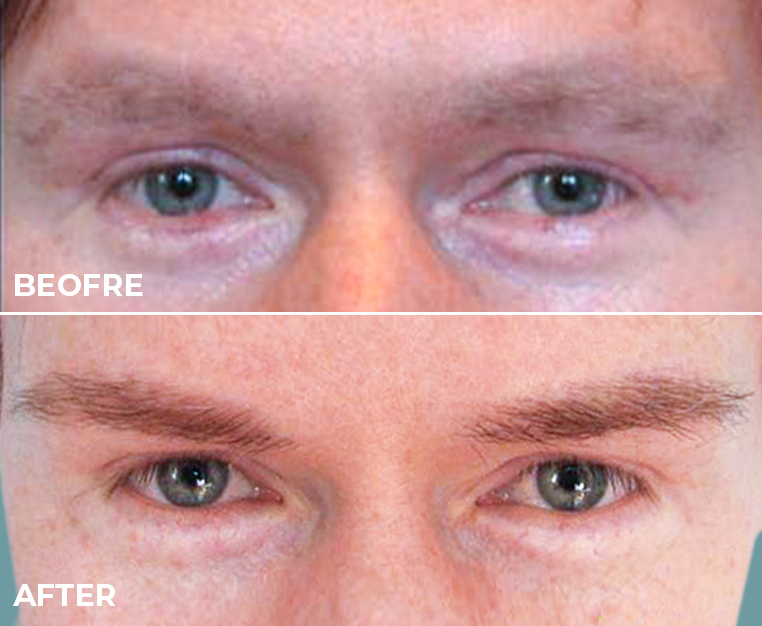Menopause is a natural biological process that marks the end of a woman’s reproductive years. It typically occurs in the late 40s to early 50s and brings about a host of hormonal changes within the body. While most women are aware of the common symptoms associated with menopause, such as hot flashes and mood swings, they might not be as knowledgeable about the impact it can have on their hair.
In this blog post, we will delve into the relationship between menopause and hair loss, exploring the reasons behind this phenomenon and suggesting strategies to cope with it.
Understanding the Hormonal Shift
During menopause, a significant hormonal shift takes place. The levels of estrogen and progesterone, two key female hormones, begin to decline, leading to changes in the hair growth cycle. Estrogen plays a crucial role in promoting hair growth and maintaining its health, while progesterone helps to balance and regulate hormone levels.
With a reduction in estrogen and progesterone, hair follicles can become more sensitive to androgens, the male hormones present in women’s bodies in smaller quantities. These androgens, particularly dihydrotestosterone (DHT), can negatively affect the hair follicles health, leading to hair thinning and eventual hair loss.
Types of Hair Loss Associated with Menopause
Telogen Effluvium
Menopause can trigger a condition called telogen effluvium, where there is a significant shedding of hair due to a disruption in the hair growth cycle. Stress, hormonal changes, and other factors can push hair follicles into a resting phase prematurely, leading to excessive hair shedding.
Female Pattern Hair Loss
Similar to male pattern baldness, women can also experience a pattern of hair loss during menopause. This condition is called female pattern hair loss (FPHL) and is characterised by a gradual thinning of hair on the crown and top of the scalp. It is influenced by genetics and hormonal changes.
Dry and Brittle Hair
The decline in estrogen levels can result in decreased oil production in the scalp, leading to dry and brittle hair. Lack of moisture can cause hair to become dull, lifeless, and more prone to breakage.
Coping Strategies for Menopausal Hair Loss
Consult a Healthcare Professional
If you notice excessive hair loss or changes in your hair’s texture during menopause, consult a dermatologist or a healthcare professional who specialises in hair disorders. They can assess your condition, rule out any underlying medical issues, and recommend appropriate treatments.
Hormone Replacement Therapy (HRT)
Hormone replacement therapy can be an option to manage menopausal symptoms, including hair loss. Estrogen supplementation through HRT may help maintain hair health and reduce the impact of androgens on hair follicles. However, HRT is not suitable for everyone and should be discussed thoroughly with a healthcare provider due to potential risks and side effects.
Adopt a Healthy Diet
A well-balanced diet rich in vitamins, minerals, and proteins can support hair health during menopause. Include foods like leafy greens, fruits, nuts, fish, and lean meats to provide essential nutrients for hair growth.
Hair Care Practices
Be gentle with your hair to prevent further damage. Avoid excessive heat styling, harsh chemicals, and tight hairstyles that can stress the hair shaft and lead to breakage. Use mild shampoos and conditioners that cater to your hair type and consider incorporating deep conditioning treatments to add moisture.
Stress Management
Menopause can be a stressful phase for many women, and stress can exacerbate hair loss. Engage in stress-reducing activities like yoga, meditation, or hobbies you enjoy to promote overall well-being.
Consider an Expert Hair Clinic for Advice
Seeking help from a specialised hair clinic can be a transformative step towards reclaiming your sense of beauty and well-being.
One treatment example is Follicular Unit Extraction (FUE), a cutting-edge hair transplant technique that ensures natural-looking results. The minimally invasive procedure involves the extraction of healthy hair follicles from donor areas and their precise transplantation to areas affected by hair loss. This technique ensures minimal scarring, quicker recovery times, and long-lasting outcomes, empowering women to regain their hair and self-assurance.
At Vinci Hair Clinic, we are renowned expertise in hair restoration, and stand as a reliable support system during this challenging time. Our team of experienced professionals understands the unique complexities of hair loss in menopausal women and offer tailored solutions to address individual needs.
In addition to FUE, Vinci Hair Clinic also provides access to advanced hair loss medications that have shown significant success in combating hair loss related to menopause. These medications work by slowing down hair thinning, promoting hair regrowth, and preserving existing hair.
Consulting a specialist hair clinic can be a pivotal moment in a woman’s hair restoration journey. Our clinic’s dedicated team offers personalised guidance and support, taking into account the individual’s medical history, lifestyle, and preferences. With Vinci Hair Clinic’s expertise and compassionate approach, women experiencing hair loss due to menopause can embrace effective solutions, restore their locks, and rediscover their inner confidence and beauty. Get in contact today for your free consultation.


